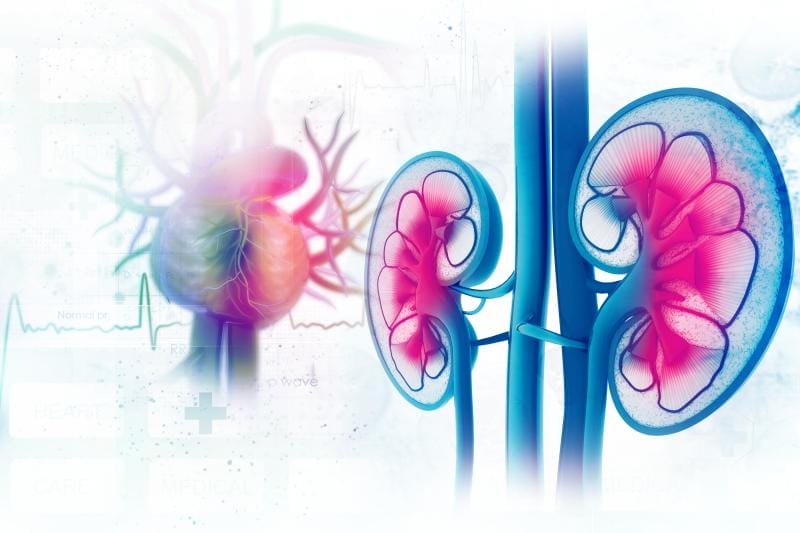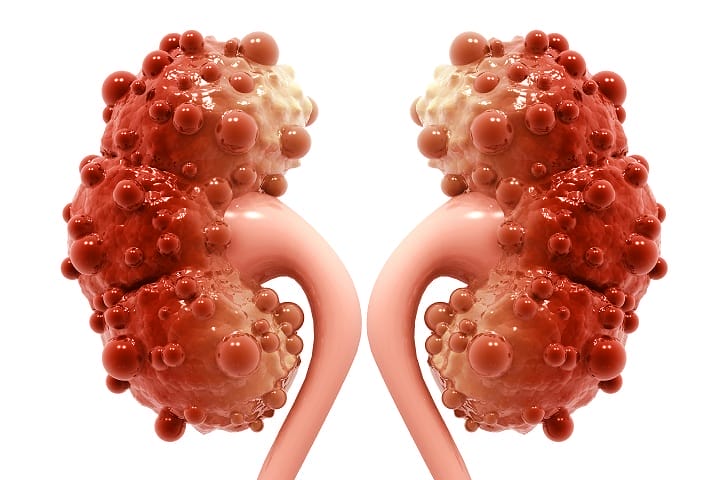Multiple Cysts develop in the kidneys due to polycystic kidney disease (PKD), a hereditary illness that can impair kidney function. Kidney failure and high blood pressure are common health consequences due to kidney disease. The majority of PKD sufferers will eventually require kidney transplantation or dialysis. Approximately 500,000 Americans have PKD.
Polycystic disease treatment in Ayurveda by KidneyXpert has helped a lot of polycystic kidney disease patients living a healthy happy life.

How does polycystic kidney disease manifest?
In the kidneys, cysts may be formed due to pkd treatment in ayurveda. Since PKD is a hereditary ailment, you must have an altered gene to develop the condition. Simple kidney cysts are not the same as PKD and are typically not harmful. PKD is a severe form of chronic kidney disease. The cysts may increase the size of the kidneys and thus may become incapable of removing waste from the circulating blood. PKD may result in kidney failure.

What causes polycystic kidney disease?
PKD can be seen in all ages, races, and ethnicities. Genetic mutations are responsible for polycystic kidney disease natural cure. In most cases, it is passed from the parents to their kids. So, we can say that PKD is inherited. At times, the genes are seen to mutate or change at random. It is observed equally in men and women.
What complications arise due to polycystic kidney disease?
PKD can be a serious health complication for adults and babies.
Adults may develop the following symptoms:
- Urinary tract infections (UTIs).
- Preeclampsia (high blood pressure during pregnancy).
- Liver cysts and pancreatic cysts.
- Kidney stones.
- Kidney failure.
- High blood pressure.
- Heart valve problems.
- Colon problems.
- Brain aneurysms.

Babies may develop the following symptoms:
- Liver problems.
- Kidney failure.
- High blood pressure.
- Breathing issues due to underdeveloped lungs.
Is polycystic kidney disease preventable?
PKD is not preventable. But you may slow down the disease or prevent kidney failure by following a healthy lifestyle.
What is the treatment for polycystic kidney disease?
- Blood pressure control: Your doctor will advise you on managing your blood pressure through medication, food, and exercise. Your risk of developing heart disease and stroke is lower if you maintain a healthy blood pressure level.
- Breathing support: Mechanical ventilation may be necessary for infants with undeveloped lungs and breathing issues.
- Dialysis: Dialysis may be needed if you have renal failure (a procedure to clean the blood). In hemodialysis, blood is filtered outside of the body using a machine. The lining of your abdomen and a specific fluid is used in peritoneal dialysis to filter blood.
- Growth therapy: Infants who are underweight or undeveloped may require assistance growing. Human growth hormone or nutritional therapy may be advised by a healthcare professional.
- Kidney transplant: A kidney transplant may be necessary if ADPKD advances to end-stage renal failure. Surgery to replace a failing kidney with a donor’s kidney is known as a transplant.
- Pain control: Drugs help lessen pain from kidney stones, infections, or bursting cysts. Any painkillers you use should have your doctor’s approval. Some drugs have the potential to worsen renal disease.

Make lifestyle changes
- At least 30 minutes of activity per day. You may lower your blood pressure, manage your weight, and control your stress levels by engaging in regular physical activity. Ask your doctor how much and what kind of physical activity is best for you if you are not currently active.
- A medical professional should do a magnetic resonance imaging (MRI) examination on you if you participate in contact sports like football or hockey to determine whether these activities are risk-free for you. In people playing these sports, kidney cysts may burst due to physical trauma, especially to the back and sides of the body.
- Get thinner. Your kidneys have to put in extra effort if you are overweight. Your kidneys are protected if you lose weight.

- Sleep for 7 to 8 hours every night. Your physical and mental health is greatly affected by sleep. It can also help you control your blood pressure, blood glucose, or blood sugar.
- Be less stressed. Being stressed for a long period can increase blood pressure and cause depression. Some of the actions you do to manage your PKD are also beneficial stress-reduction techniques. For instance, you have enough rest, and exercise can help lower stress.
- Give up smoking. Cigarette smoking increases blood pressure and can exacerbate kidney impairment. It may be possible to achieve your blood pressure goals by giving up smoking, which is good for your kidneys and may reduce your risk of a heart attack or stroke.
Living with PKD and the role of Ayurveda
If you are living with PKD, your top priorities are maintaining a good life and properly managing the disease. This includes a well-balanced diet, staying physically active, and learning to manage. It is also important to learn accurately and adequately about PKD. The more correct you know, the better you can care for yourself.

As per Ayurveda, the balance of Vata, Pitta and Kapha doshas drives the Kidney’s function in the body. However, if people suffer an imbalance of these doshas, kidney cyst or Gurda Granthi may form. PKD varies in severity from person to person but the complications caused by it are preventable.
According to Ayurveda, any problem arises in the body due to undisciplined lifestyle, inadequate diet and lack of physical activity. Ayurvedic way of lifestyle and treatment can help you regulate PKD and rejuvenate the kidneys. The Ayurvedic medicine system and its suggestive Lifestyle changes might help you reduce damage to your kidneys from severe complications.

